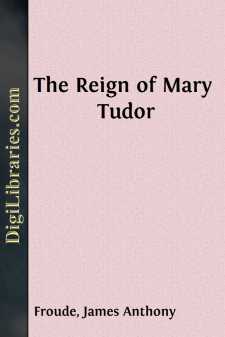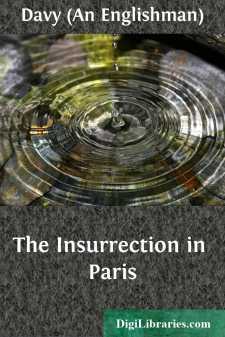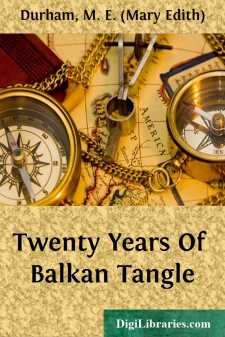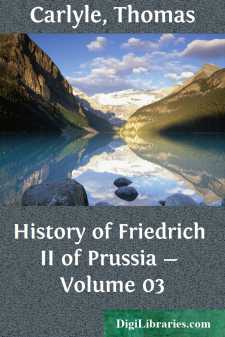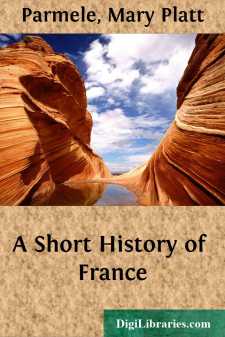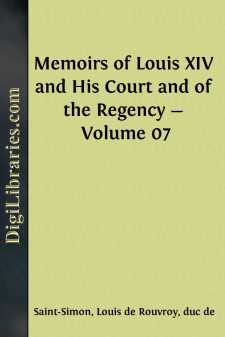History
- Africa 30
- Americas (North Central South West Indies) 50
- Ancient 68
- Asia 58
- Australia & New Zealand 8
- Canada 41
- Caribbean & West Indies 1
- Civilization 20
- Eastern Europe 12
- Europe
- Expeditions & Discoveries 60
- General 77
- Historical Geography 1
- Jewish 9
- Latin America 3
- Medieval 8
- Middle East 14
- Military 248
- Revolutionary 8
- Study & Teaching 5
- United States 353
- Western Europe 56
- World 13
Europe Books
Sort by:
INTRODUCTION. The memory of no English sovereign has been so execrated as that of Mary Tudor. For generations after her death her name, with its horrid epithet clinging round it like the shirt of Nessus, was a bugbear in thousands of Protestant homes. It is true that nearly 300 persons were burnt at the stake in her short reign. But she herself was more inclined to mercy than almost any of her...
more...
RECOLLECTIONS OF THE PARISIAN INSURRECTION. The desire of appreciating de visu the results of a five month's siege in a town of two million inhabitants, unexampled in the annals of humanity, made me leave London on the twentieth of March. Hardly landed in the Capital of France which I thought of finding tranquil and occupied in exercising its genius in repairing the disasters caused by the enemy,...
more...
LECTURE I THE SEA CRADLE OF THE REFORMATION Jean Paul, the German poet, said that God had given to France the empire of the land, to England the empire of the sea, and to his own country the empire of the air. The world has changed since Jean Paul's days. The wings of France have been clipped; the German Empire has become a solid thing; but England still holds her watery dominion; Britannia does...
more...
by:
Snorri Sturluson
In this book I have had old stories written down, as I have heard them told by intelligent people, concerning chiefs who have have held dominion in the northern countries, and who spoke the Danish tongue; and also concerning some of their family branches, according to what has been told me. Some of this is found in ancient family registers, in which the pedigrees of kings and other personages of high...
more...
At the Mermaid. Thus Raleigh, thus immortal Sidney shone (Illustrious names!) in great Eliza's days. --Thos. Edwardes. The numberless diamond-shaped window panes of the Mermaid Tavern are twinkling like so many stars in the chill December air of London. It is the last meeting of the Mermaid Club for the year 1596, and not a member is absent. As they drop in by twos and threes and gather in...
more...
TWENTY YEARS OF BALKAN TANGLE CHAPTER ONE PICKING UP THE THREADS It was in Cetinje in August, 1900, that I first picked up a thread of the Balkan tangle, little thinking how deeply enmeshed I should later become, and still less how this tangle would ultimately affect the whole world. Chance, or the Fates, took me Near Eastward. Completely exhausted by constant attendance on an invalid relative, the...
more...
I adopt a course different from that recently pursued by several of my contemporaries; I publish my memoirs while I am still here to answer for what I write. I am not prompted to this by the weariness of inaction, or by any desire to re-open a limited field for old contentions, in place of the grand arena at present closed. I have struggled much and ardently during my life; age and retirement, as far...
more...
by:
Thomas Carlyle
Chapter I. — KURFURST FRIEDRICH I. Burggraf Friedrich, on his first coming to Brandenburg, found but a cool reception as Statthalter. ["Johannistage" (24 June) "1412," he first set foot in Brandenburg, with due escort, in due state; only Statthalter (Viceregent) as yet: Pauli, i. 594, ii. 58; Stenzel, Geschichte des Preussischen Staats (Hamburg, 1830, 1851), i. 167-169.] He came as...
more...
CHAPTER I. One of the greatest achievements of modern research is the discovery of a key by which we may determine the kinship of nations. What we used to conjecture, we now know. An identity in the structural form of language establishes with scientific certitude that however diverse their character and civilizations, Russian, German, Englishman, Frenchman, Spaniard, are all but branches from the same...
more...
The death of D'Avaux, who had formerly been our ambassador in Holland, occurred in the early part of this year (1709). D'Avaux was one of the first to hear of the project of William of Orange upon England, when that project was still only in embryo, and kept profoundly secret. He apprised the King (Louis XIV.) of it, but was laughed at. Barillon, then our ambassador in England, was listened...
more...


